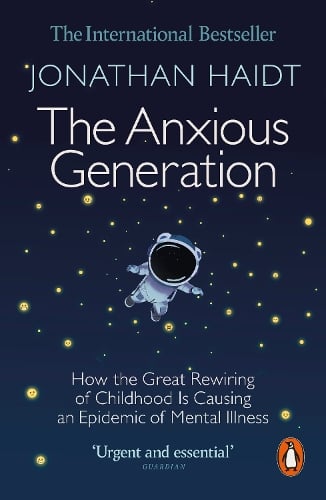Jonathan Haidt's 'The Anxious Generation' explores the link between increased smartphone and social media use and the rise in youth mental illness, offering valuable insights but relying heavily on generalisations and metaphors. The book is strongest in its analysis of social media's impact but weaker in its discussion of the decline of unsupervised play.
Jonathan Haidt's 'The Anxious Generation' delves into the alarming increase in mental health issues among young people, attributing this trend to the widespread adoption of smartphones and social media. The book presents a compelling case, drawing on extensive research and anecdotal evidence, particularly in its examination of how social media platforms exploit psychological principles to create addictive products. However, the argument becomes less convincing when Haidt shifts focus to the decline of unsupervised play as a contributing factor. Here, the evidence is more anecdotal and metaphorical, lacking the robust scientific backing seen in the earlier sections. The book also offers practical suggestions for mitigating the negative impacts of technology on youth mental health, such as delaying smartphone access and enforcing age restrictions on social media. While the book provides a thought-provoking discussion, its reliance on generalisations and rhetorical devices weakens its overall impact.
Quick quotes
Social media companies such as Facebook/Meta have knowingly drawn on relevant psychological research to create addictive products
Girls more likely to use social media and boys more likely to consume pornography and to play video games. The rise in anxiety and depression is more pronounced in girls.
Haidt makes it sound as though rules for bringing up children today can be directly deduced from evolution, even though humankind has evolved over millennia in greatly differing and changing environments.
